SUV's: Small is Beautiful
Detroit execs have been too quick to sell the idea that consumers' clocks have struck midnight and turned the hardcore small SUV and pickup party into a pumpkin. Ask any domestic automaker, and today's smart truck money is almost exclusively on the crossover market. And while it's true that all-wheel-drive softroaders are hot, the notion that Americans won't pony up for a charismatic, purposeful body-on-frame compact is utter nonsense. The segment's erosion has far more to do with a dearth of compelling product than it does with the rise of alternative classes.
Need proof? Look no further than Jeep's evergreen Wrangler. Despite underpinnings hewn from Woolly Mammoth tusks and a convertible top that only a masochist could love, it continues to sell smartly year after year, decade after decade. In fact, its sales have actually been trending UPWARD as of late– no doubt thanks in part to the overdue addition of Jeep's Unlimited model (and the brand's ever-present cult of personality).
Of course, not every vehicle possesses Jeep's iconic style and enviable lineage. But that hasn't stopped Nissan from doing a decent trade in its Xterra. Based on a then-aging Frontier pickup, the first generation model quickly capitalized on the unrealized demand for an authentic 'purist's' SUV, almost in spite of itself. Overlooking more cheap plastic rattles than a Tic-Tac factory, those much-coveted 'extreme-sports' types lined up, smitten with the Xterra's beefcake visuals (jungle-gym roof rack, first-aid kit tailgate blister, etc.). Freshly bulked up, the second-generation Xterra remedies its predecessor's deplorable on-road manners and exiguous power allotment, all while fortifying its off-road credibility.
Sadly, the best a domestic compact truck intender can hope for these days is Ford's moth-eaten Ranger and General Motors' instantly-dated Colorado/Canyon twins. Loyalists looking to trade-in their old examples have been understandably reluctant to shell out for what amounts to dent-free versions of what they already own. It comes as little surprise, given Ranger's oatmeal-like constitution and appearance. GM's duo manages better, but suffers from a poorly conceived engine range and interiors exuding more plastic flashing than Anna Nicole.
Worryingly, there's little relief in sight. Bill's boffins continually push afield a Ranger replacement, and GM's ColCan is still too light on calendar pages to receive a meaningful upgrade. Worse still, neither appears to be anywhere close to introducing a hardcore demi-ute. Of course, flag-wavers still have Dodge's Dakota and Durango, but their available V8s are thirsty and less powerful than competitor's V6s, and neither remotely says 'compact.'
Which brings us to the Japanese. Once-dormant Nissan has moved closer to fine with its confident new Frontier. Formerly a knock-kneed, oddly styled also-ran, Nissan wisely plugged its Titan full-sizer into a Xerox machine set on 'Mini-Me,' resulting in a powerful and competitive midsize offering.
And while Toyota's long been guilty of misunderstanding the needs of the American truck buyer (the too-small T-100 begetting the too-small Tundra, etc.), that's no longer true. The Tacoma now impresses with its configurability and segment-defining power and refinement. What's more, the forthcoming FJ Cruiser signifies Toyota's intention to transcend its reputation for trafficking solely in the safe, sanitized, and reliable. If its throwback off-roader arrives cheaply enough, expect a colossal hit.
It didn't have to be this way. Ford's delectable derv-burning Bronco concept went down a storm at the 2004 NAIAS, and should've been fast-tracked for production immediately. However (and somewhat predictably), Dearborn lacks suitable drawers in its hamper for the SUV, and the Bronco remains mired in feasibility studies. At last word, Ford's Brazilian-built EcoSport platform is under consideration, but such rumblings lack promise. An old school off-roader masquerading atop a car-derived monocoque? Umm, no.
Lest we forget, in 2002, Dodge's M80 concept promised to put the 'body' back in 'body-on-frame.' Retro-steeped yet forward thinking, John Opfer's design was enthusiastically received by press and consumer alike, but the much-discussed 'shrinking small pickup market' shriveled Dodge's cojones in the end. Pity, as it would've made for a nifty little SUV, too.
It's tragic. The Big Three desperately need solid-selling small trucks to boost their CAFE figures and improve their lot among younger buyers. As it stands, the Ranger and Colorado lose ground minute by minute, their numbers propped to competitiveness largely via incentives and fleet sales. Dodge is the closest domestic to righting its ship, but remains well adrift.
Look: just a few years ago, most execs completely wrote off rear-wheel-drive family sedans, station wagons and hatchbacks. DCX's wildly successful 300 and Magnum, along with BMW's MINI illustrate that the right products write their own demand curves, statistics be damned. It's a shame Detroit remains oblivious to the latent sales potential in the small 'true' pickup/SUV segments, because their competitors aren't likely to make the same mistake.
More by Chris Paukert
Latest Car Reviews
Read moreLatest Product Reviews
Read moreRecent Comments
- Jalop1991 Way to bury the lead. "Toyota to offer two EVs in the states"!
- Jalop1991 I'm sorry, Dave. I'm afraid I can't do that.
- Jalop1991 We need a game of track/lease/used/new.
- Ravenuer This....by far, my most favorite Cadillac, ever.
- Jkross22 Their bet to just buy an existing platform from GM rather than build it from the ground up seems like a smart move. Building an infrastructure for EVs at this point doesn't seem like a wise choice. Perhaps they'll slow walk the development hoping that the tides change over the next 5 years. They'll probably need a longer time horizon than that.



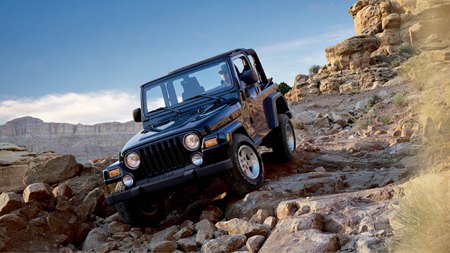



















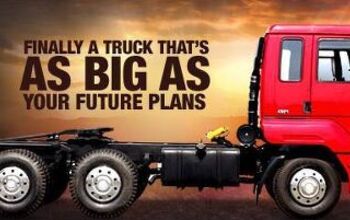
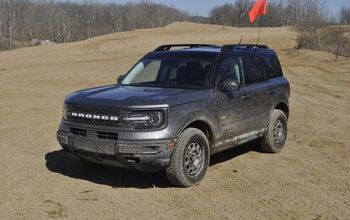
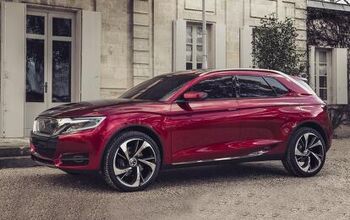
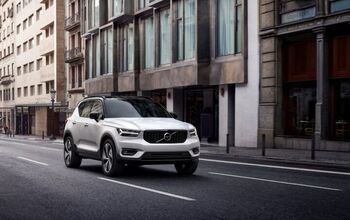
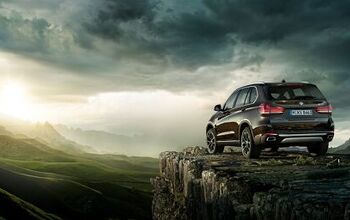










Comments
Join the conversation